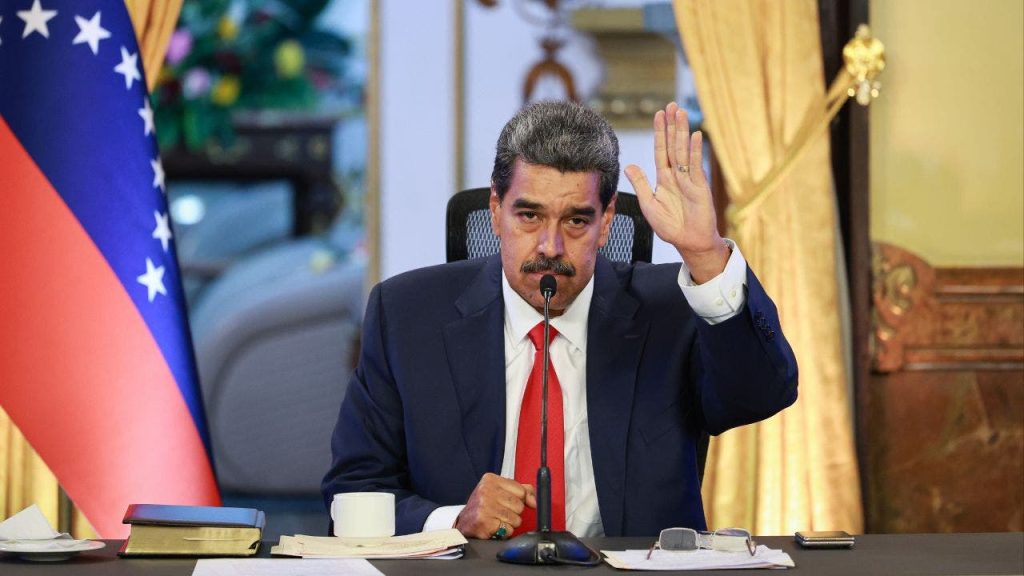In a gripping testimony to the United Nations Human Rights Council, Venezuelan opposition figure Pedro Urruchurtu detailed the harrowing experiences he and four other members of the opposition endured while taking refuge in the Argentine Embassy in Caracas. For more than 400 days, they faced extreme hardships amidst Nicolás Maduro’s regime, culminating in a dramatic rescue operation by U.S. officials in May. Urruchurtu’s compelling account sheds light on the ongoing human rights violations in Venezuela, illustrating a dire situation that has left many feeling hopeless and oppressed.
| Article Subheadings |
|---|
| 1) Life in the Argentine Embassy |
| 2) Conditions Under Siege |
| 3) A Straightforward Rescue Mission |
| 4) UN Human Rights Council’s Response |
| 5) A Call for Global Awareness |
Life in the Argentine Embassy
Venezuelan political opposition members, including Pedro Urruchurtu, sought sanctuary in the Argentine Embassy in Caracas due to the severe risks posed by the Maduro regime. Fearing for their lives, these figures took refuge in the embassy, which afforded them a degree of protection due to its diplomatic status. Urruchurtu recounted being effectively trapped, highlighting how being inside the embassy turned from a safe haven to a prison of necessity over time. Despite the potential asylum, they faced the immediate threat of detention or worse from regime forces.
Conditions Under Siege
Living conditions within the embassy deteriorated rapidly under the pressure of ongoing harassment from Maduro’s security forces. Urruchurtu described harrowing details such as enduring five months without electricity and accessing water only three minutes every ten days. The psychological weight of being surrounded by armed guards and rottweilers trained to intimidate served to further exacerbate an already dire living situation. Urruchurtu stated, “The situation was like a bad dream from which there was no awakening,” emphasizing the unyielding nature of their confinement.
A Straightforward Rescue Mission
The plight of Urruchurtu and his fellow opposition members drew the attention of U.S. officials, leading to a remarkable rescue operation that was executed with precision. In May, Secretary of State Marco Rubio announced that the group had been successfully extracted from Venezuela in what he described as a “precise operation.” This intervention marks a significant moment not only for the rescued individuals but also reflects an increase in international efforts to combat political repression in Venezuela. The role of U.S. diplomacy once again proved instrumental in saving lives.
UN Human Rights Council’s Response
During the same session, UN High Commissioner for Human Rights Volker Türk addressed the council, detailing the deteriorating human rights landscape in Venezuela. He reported cases of arbitrary detentions, torture, and enforced disappearances, with alarming statistics such as 32 individuals—many of whom were adolescents—having faced torture while in custody. The council was informed about the plight of at least 28 people who had gone missing post-election, with many of their families left in distress, unsure of their loved ones’ fate.
A Call for Global Awareness
In the aftermath of Urruchurtu’s testimony, human rights advocates have rallied for global vigilance regarding the ongoing humanitarian crisis in Venezuela. Magnifying their call for action, representatives from various human rights organizations emphasized the need for the world to “no longer look away from the brutal reality of what Venezuela has become.” Statements from figures such as Hillel Neuer, Executive Director of UN Watch, highlight that many still live under persecution, urging the international community to recognize the plight of those who are imprisoned, exiled, or facing extreme repression from the regime.
| No. | Key Points |
|---|---|
| 1 | Pedro Urruchurtu and four other opposition members took refuge in the Argentine Embassy for 400 days. |
| 2 | The group faced severe living conditions, including deprivation of basic utilities. |
| 3 | U.S. officials intervened in May 2024 to rescue Urruchurtu and his associates. |
| 4 | The UN Human Rights Council reported worsening conditions for human rights in Venezuela. |
| 5 | Human rights advocates called for global attention to the ongoing crisis in Venezuela. |
Summary
The experiences recounted by Pedro Urruchurtu shed light on the increasingly oppressive political climate in Venezuela under Nicolás Maduro. His testimony not only serves as a personal narrative but also as a representation of the broader human rights violations occurring in the country. As the international community continues to grapple with these issues, it is imperative to recognize the urgency of the situation and the necessity for concerted efforts aimed at supporting political dissidents and advocating for human rights.
Frequently Asked Questions
Question: Who is Pedro Urruchurtu?
Pedro Urruchurtu is a member of the Venezuelan political opposition who took refuge in the Argentine Embassy for over 400 days.
Question: What kind of conditions did Urruchurtu face in the embassy?
Urruchurtu experienced dire living conditions, including the absence of electricity and limited access to water, amidst threats from regime forces.
Question: What actions did the United States take regarding Urruchurtu’s situation?
The U.S. undertook a rescue mission to extract Urruchurtu and other opposition members from Venezuela in May 2024, highlighting diplomatic intervention.


